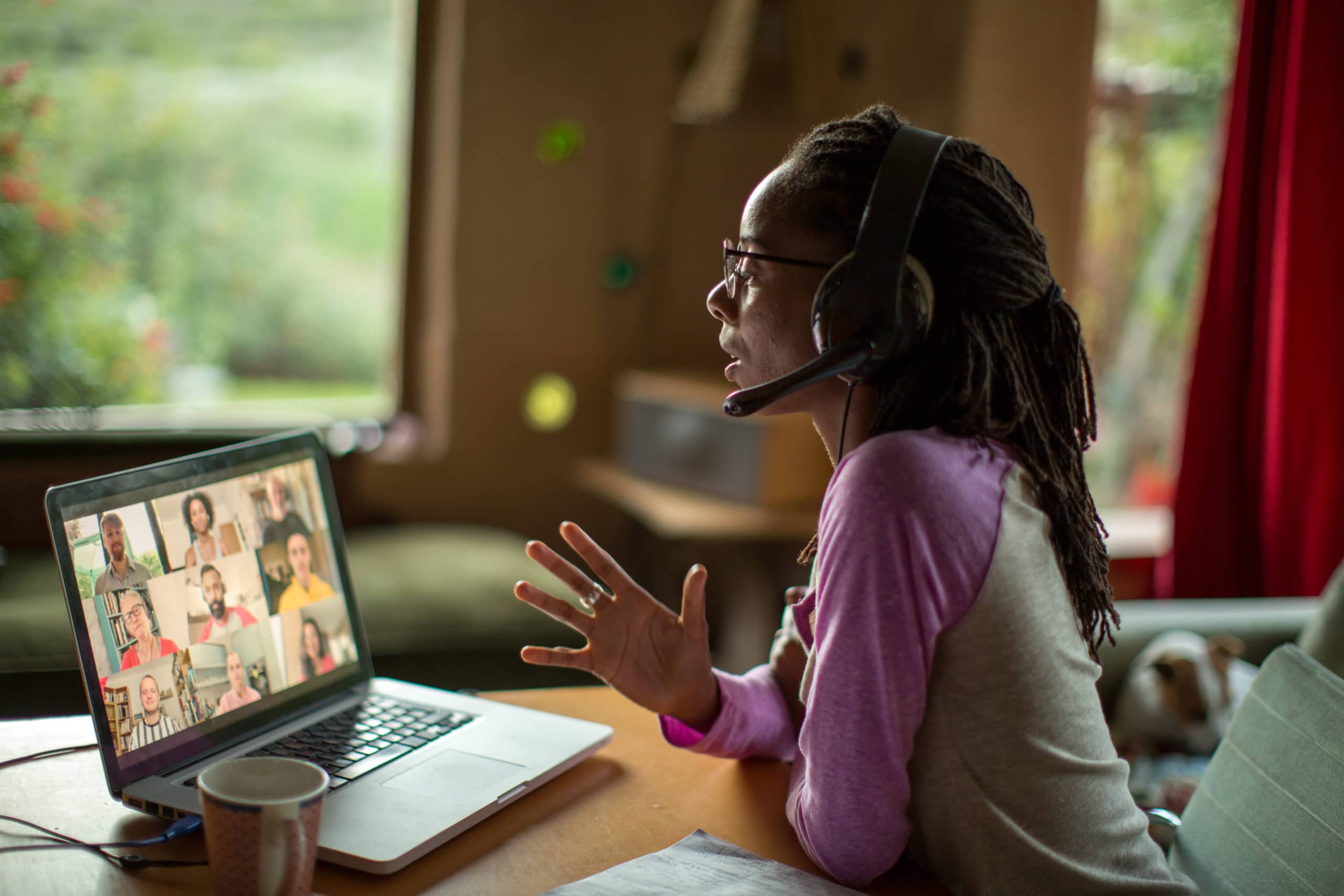THE DARK HOURS OF THE LOCKDOWN AND THE DRASTIC THIRD WAVE MEANT SOUTH AFRICANS INCREASINGLY TURNED TO TECHNOLOGY FOR SUCCOUR, SUPPORT AND SHARED EXPERIENCES.
BY NAFISA AKABOR
LEVEL 5 OF LOCKDOWN in South Africa was a particularly traumatic time, not just from loss but also watching the world see the underbelly of racism so openly. Living alone and not being able to see anyone and hearing that someone you care about has passed or is fighting for their lives seemed so surreal. There is only so much crying you can do over the phone, on video calls or by yourself.”
Mich Atagana, author of Moments and Love Hangovers, two books penned in lockdown about love, loss, women, and faith, chats to FORBES AFRICA about what it was like seeking digital solace during the darkest periods of lockdown.
“I spent a lot of time writing, thinking my feelings out like a To-Do list. On Tuesday mornings, I would allocate an hour just to listen and sing loudly to Celine Dion, cry and feel everything that my body, my mind, and heart was going through. No one could hug me, no one could sit with me, so I had to be there for myself and find strength in my own company,” says Atagana.
Loading...
Lockdown also helped her focus on meditation, something she always incorporated into her life, but this time through an app subscription. “Headspace is a great way to center yourself and distract your mind from anything that could bring in negative thoughts. It’s helped me manage my sad moments and ground me so I can clearly look at my day.”
Headspace was not her only solace. Atagana also turned to a therapist app called Talkspace because seeing a psychologist was not an option.
“Having someone on the other side of chat, call, or voice note was very helpful. It made things easier and calmed my anxieties a lot.”
Grieving for loved ones was also challenging. Jamela Garda explains what she went through after losing a friend of over 30 years to Covid-19. A message board was created for her friend on Kudoboard.com, with over 80 entries and images posted on it.
Garda, who battled to find closure, tells FORBES AFRICA: “I could not make a speech or say a few words at the funeral but this way I could express my inner feelings and write from my heart instead of being huddled up in the corner of a room crying for her without saying a word.”
“A digital board is an amazing platform to honor someone who has passed away. We often listen to stories told to us about our parents, grandparents, etc. and we hang onto every word; it’s almost like we get transported to that era. This way, Fatima’s grandchildren and their children can all read it and say ‘wow, that was my amazing grandma’,” says Garda.
“The pain is still there but now that I documented it, I can always go back to it and remember how it made me feel,” she adds.
Dr. Leila Abdool Gafoor, a psychologist based at the University of Johannesburg, says with the onset of lockdown, mental healthcare workers had to find new means of connecting with patients.
“Mediums such as Skype, telephone and WhatsApp counseling became more prominent. Digital counseling has allowed us as humans to connect and have a shared experience, which is often missing in this time as we remain isolated at home,” says Gafoor.
“Video calls have been the most useful as it not only provides an auditory means of support but adds in a visual factor which increases an emotional connection between two people.”
“Initially there was a heightened anxiety related to the reliance on technology as a means of communication and for many South Africans, a means of income,” she says.
“As much as digital solace has been an invaluable means of moving towards acceptance, face-to-face counseling still has its merits as a means of connection.”
Kareema Mitha, a trauma release practitioner at Wellness on Alon in Johannesburg, says the digital option is most appealing to people under the age of 45 in South Africa and often the preferred choice due to the ability to remove transit time and complete an appointment from the comfort of your own garden or bedroom.
“On the flip side, if the space of the home office lacks complete privacy and interruptions are prevalent, sessions are rendered less effective.”
Digital solace in the past year has been the only option of the social grieving process for survivors, says Mitha.
“As humanity, we always surprise ourselves in our most primal ability to survive, adapt, and eventually thrive in the direst circumstances.”
Discovery Health has shared data with FORBES AFRICA that shows a 20-fold increase in virtual consultations for psychologists last year than the previous year. And its ‘young doctor and student’ mental health 24-hour hotline operated by SADAG has taken over 50% of calls for anxiety, depression, and stress in April alone.
Atagana’s parting words of wisdom is that people are trying to be strong during this time because they feel that’s what it means to survive it. “But I think this is the best time to show vulnerability because, for the first time in the history of the human race, we are all going through it together.”
Loading...
